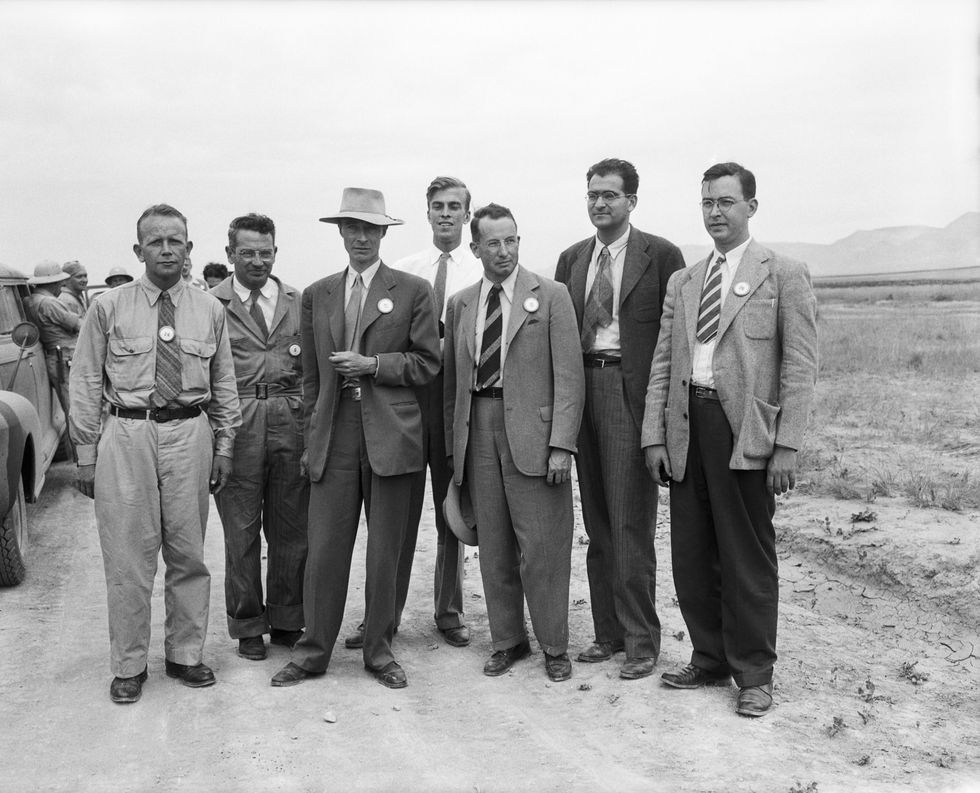
Anna Moneymaker via Getty Images

There is an epidemic of politicians short-circuiting. Either that or having 80-somethings running the most powerful country in all of human history is starting to show its limitations. Over the weekend, a video emerged of Senate Minority Leader Mitch McConnell freezing when asked if he would seek re-election. After an excruciating pause, an aide appears to help shuffle him away. Anyone who’s spent time with an elderly relative knows intuitively the look on his face, confused and flustered, as he stares off into space.
WATCH: Senate GOP leader Mitch McConnell appears to freeze for second time youtu.be
It would be easy to chalk it up to a momentary lapse if Sen. McConnell hadn’t experienced a nearly identical episode just a month ago. In August, it emerged that Senator Dianne Feinstein had given up power of attorney to her daughter. She also had to be told which way to vote by an aide. President Biden himself seems to be reaching a point where no amount of prepared questions or spin can hide his cognitive decline. It raises the question of who is running the country when he naps.
Now, there’s no reason an elderly person can’t be an adept legislator. Still, it’s hard not to see an analogy for a decrepit empire in every shuffling and befuddled leader paraded out. It goes beyond trying to explain technology to people who think the internet "is a series of tubes" to core governance competencies. There are currently nineteen members of Congress in their 80s or 90s, and Congress is by far the oldest it’s ever been.

Contrasting this with America’s most significant technological achievement, the Manhattan Project, is interesting. Christopher Nolan’s spectacular summer blockbuster “Oppenheimer” tells this spellbinding story with verve. And there are some excellent books on the project, particularly "American Prometheus" by Kai Bird and Martin J. Sherwin and "109 East Palace" by Jennet Conant. Forgotten is the relative youth of the leaders in the race for the bomb.
The lead scientists and military commanders were exclusively in their 30s and 40s. J. Robert Oppenheimer was 38 when work began, and Ernest Lawrence was 41. Klaus Fuchs, Edward Teller, Glenn Seaborg, and Hans Bethe were in their 30s; Richard Feynman was 24. Enrico Fermi and Leo Szilard were in their early 40s, and James Conant and General Leslie Groves were the elder statesmen at 48 and 49, respectively.
Maybe this is all a coincidence, but when Heisenberg and the Nazis had a significant head start and the Americans set out to achieve perhaps the most incredible scientific breakthrough in human history, they didn’t choose men based on seniority. It’s not hard to imagine a present-day Manhattan Project led by Baby Boomers, picked for their experience and mired for decades in bureaucratic meetings.
The Trinity test was a culmination of some extraordinary effort and talent, helped in no small part by Nazi racial laws that caused many of the best physicists in the world to switch sides. It’s incredible that the entire project only cost $37 billion in today’s dollars; that’s what we send our Ukrainian allies every few months. This isn’t meant to indict age or spark intergenerational animus. It is merely to point out that when faced with civilization-level problems, sometimes youth and new forms of thinking can be an advantage.
Our present-day leadership seem to have no interest in enjoying their golden years with their families, spending the hundreds of millions they’ve accumulated. Power is an elixir that is hard to put down. Science seems poised to step in with Ponce de Leonian remedies to mortality, with genetic manipulation, stem cell injections, and blood transfusions from the young. Why relinquish power when life-extension tech can keep you spry and grafting for years to come? As the 2024 election approaches, where an 81-year-old man will likely run against a 78-year-old, one can only dream of a different world.